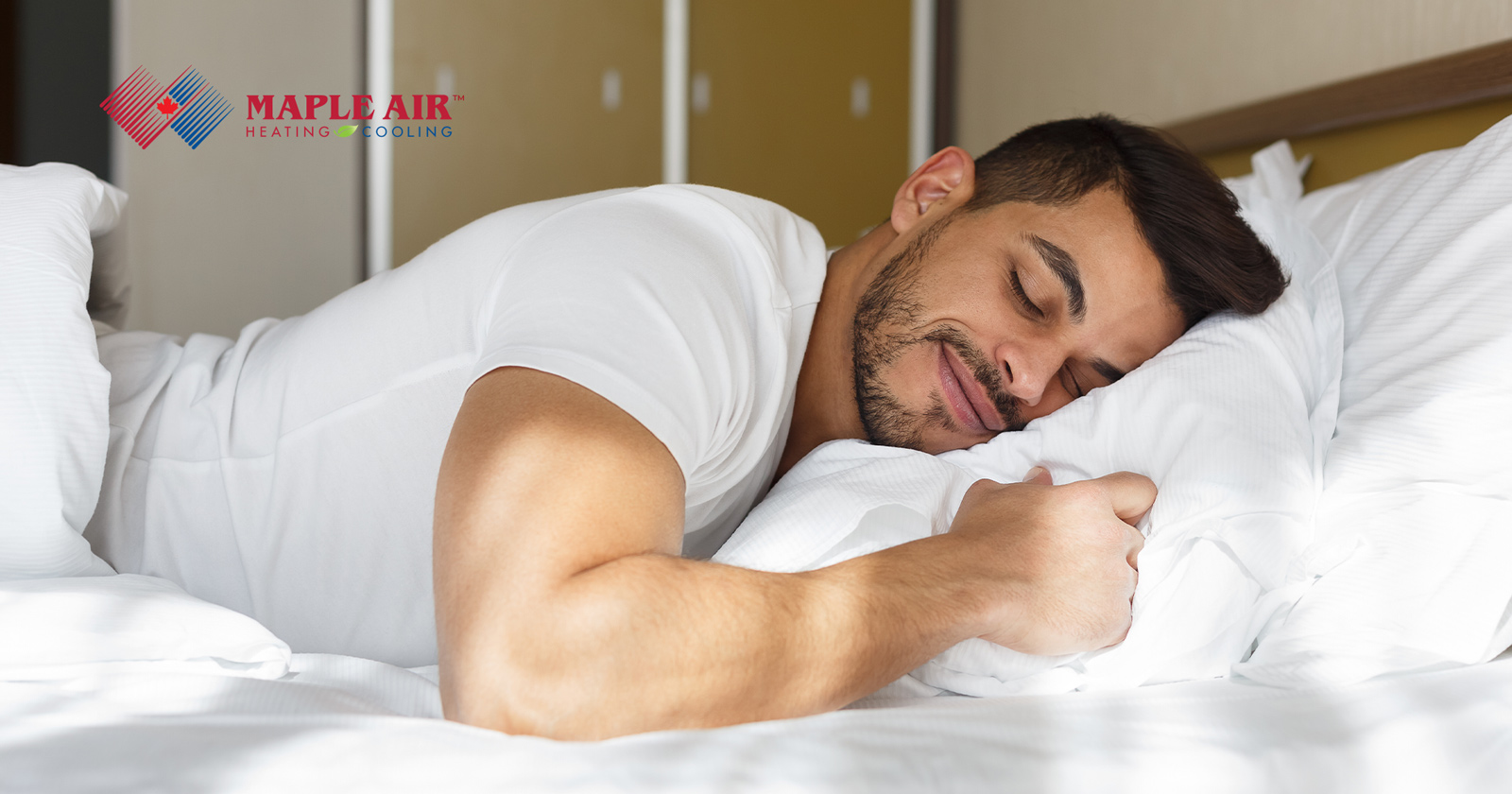
September 16, 2022
Tossing and turning all night long? Waking up in the morning feeling exhausted? These are all signs of poor sleep quality. Sleeping takes up one-third of our life. It's an essential factor for a healthy and long life. There are multiple factors that affect your sleep quality, such as light, sound, and overall environment. To help you get a good night's rest every night, we'll be touching upon one of the most impacting factors: your indoor sleeping environment.Best Indoor Temperature for Optimal Sleep
Sleep Temperature
Sleeping preference is a case-by-case scenario. Some people are warm sleepers, while others are cold sleepers. Remember that aside from the warmth or coolness your body feels, the temperature also affects the air you are breathing. On average, a healthy indoor temperature ranges between 20 to 24 degrees Celsius.
As seasons change, so will your indoor temperatures. During the summertime, many individuals will aim for a lower home temperature, around 20 degrees Celsius. Meanwhile, many prefer a warmer home during the winter months and will opt for closer to 22 to 23 degrees Celsius.
Best Sleep Temperature Per Age Group
Did you know that different age groups have different temperature settings as well? Babies, toddlers, and children typically sleep better in a home temperature range of 19 to 21 degrees Celsius. Meanwhile, adults have shown better sleep at slightly cooler temperatures ranging between 16 to 20 degrees Celsius. Seniors, similar to children, will sleep comfortably at 19 to 21 degrees.
Improving Sleep Quality
Aside from the general temperature of your room, your sleep is also affected by humidity levels and overall air quality. There are a few ways you can improve your space to better your nightly sleep:
- Invest in a smart thermostat: a smart thermostat allows you for custom comfort settings. Have your thermostat automatically adjust for your ideal nighttime temperature.
- Humidifier: low humidity levels can cause discomforts, such as but not limited to dry throat, dry eyes, and dry skin. It can also negatively impact your home causing paint chips and split wood. Investing in a humidifier will create an optimal environment for your overall home, improving your sleep quality as well.
- Air purifiers: Sleep quality is impacted by the air you breathe. Having a system that reduces dust, bacteria, and other airborne pathogens is also beneficial for your health and overall sleep ability.
Sleep is a necessity for everyone. If you find that your sleep is not ideal, consider testing different temperature settings and reflecting on how you feel each morning. Additionally, see if you have the proper HVAC systems in place for an ideal home environment. At Maple Air Heating and Cooling, serving the Greater Toronto Area, we understand the importance of comfort day and night. If you're looking to improve your air quality, heating, or cooling system, contact us today.














